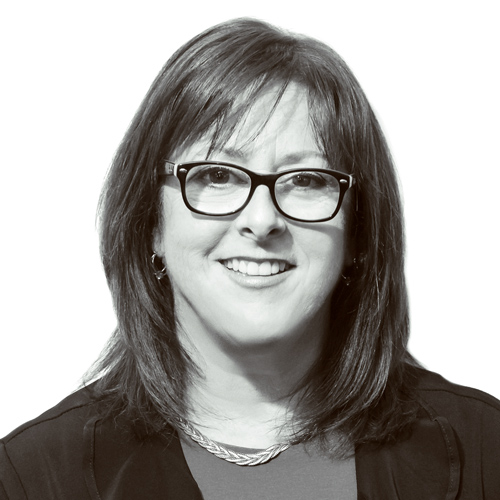Dignity Health’s roots go back to 1854, when the Sisters of Mercy established St. Mary’s Hospital, the oldest continuously operating hospital in San Francisco. It has evolved into four hundred care sites (including thirty-nine hospitals) across a twenty-two-state network of comprehensive care. A major period of growth has occurred since 2006—the year in which Matthew Stockslager, now vice president and associate general counsel, joined Dignity Health. Prior to his arrival, the organization was actively seeking external partners for joint ventures and merger-and-acquisition activities to increase its points of care outside of the traditional hospital setting, and Stockslager has been instrumental in facilitating that change.
“I was hired as a regional general counsel but was asked almost immediately to provide legal support for the new growth strategy,” Stockslager explains. “By identifying the right partners, we have been able to greatly expand access to care for our communities and create more cost-effective service delivery options for patients and for the organization.” To date, Dignity Health has established more than 150 joint venture relationships and/or locations, along with many other types of affiliations.
One of its key early relationships was with United Surgical Partners International, a national leader in developing and managing outpatient surgery centers. Not only has that collaboration resulted in close to thirty outpatient and specialty surgical locations across the organization’s service areas, but it has also allowed Dignity Health to gain valuable insight into developing models for successful partnerships.

Such ventures require a great deal of trust between the parties involved. Stockslager points out that Dignity Health leadership’s willingness early in the process to establish procedures for internal review and developing good relationships helps guide how the organization evaluates new growth opportunities. However, he says circumstances still arise that require compromise.
“Part of the reason for partnering is because the other organization has a certain expertise and knowledge base,” Stockslager says. “Even though it might have a different view on a specific issue, allowing them to leverage their experience goes a long way toward building the trust you need to succeed.”
Stockslager and his team have helped Dignity Health build a reputation for being a collaborative partner in everything from governance and financing growth strategies to ensuring regulatory compliance.
“If you ask any of our partners, they will tell you that Dignity Health is always dedicated to fulfilling our commitments and to exploring multiple options in order to find the best solutions for the specific needs of each venture,” Stockslager says.
By 2012, he was spending more and more time working closely with the business team responsible for developing external partnerships. Stockslager’s role had also become increasingly focused on transactions and affiliations to help expand the company’s service capabilities. Other lawyers in the department working on separate specialized issues have also developed their own areas of expertise. At the same time, Dignity Health was adjusting some of its internal operating structure. Due to this alignment of factors, Stockslager, the general counsel at the time, and the rest of the legal leadership team decided to analyze how the entire department could perform more efficiently and effectively and provide more consistent advice to the organization’s business units.
“By identifying the right partners, we have been able to greatly expand access to care for our communities and create more cost-effective service delivery options for patients and for the organization.”
Ultimately, the team helped lead a major shift in the department’s approach. Instead of lawyers acting as generalists within a geographic region, they would develop and leverage expertise in specific functional areas.
“Rather than having each hospital lawyer in every region handling everything from physician contracts to real estate leases, now we can support the organization more effectively by identifying specialists among us to handle particular issues,” Stockslager says. “In the same way that the organization chooses to partner with experts, we can offer the same level of service and insight by being more functionally focused.”
This has led to other specialized entities within the legal department, such as the Real Estate and Construction Group and Hospital Operations Group. It has also produced faster turnaround time on requests for legal advice since specialists are often able to identify appropriate resources more quickly.
The approach has also preserved personal relationships within the organization. “Our lawyers are still located close to many of our hospitals, so they can be assigned to a particular location and continue to interact with executives and physicians there,” Stockslager says. “But when a specialized issue comes up, that attorney can act as a liaison with the subject matter expert and clients don’t feel as if they’re suddenly dealing with a stranger.”
Stockslager characterizes the legal department as being in a continual state of evaluation to determine how it can most effectively support the organization’s business objectives. This continual process of improvement covers everything from whether to use electronic intake for all legal requests or to create self-help tools to assist clients with finding solutions faster. “We’re no different than the clinical side,” he says. “We’re always looking for ways to reach positive outcomes faster and more effectively.”
The Polsinelli healthcare group is proud to serve as outside counsel to Dignity Health. The Polsinelli team applauds Matt Stockslager of Dignity Health for his leadership and dedication to the healthcare industry, specifically with his vision and agility navigating the challenges and opportunities necessary to succeed in today’s healthcare environment.


